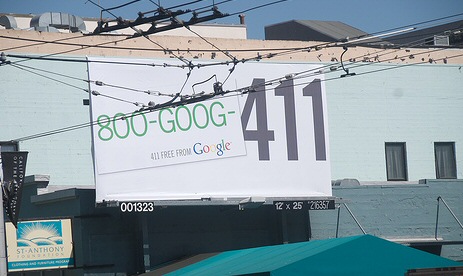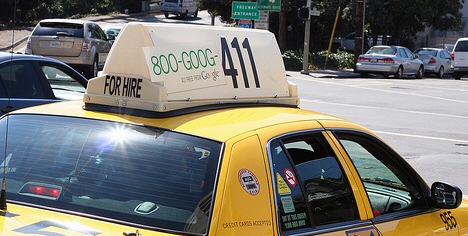* a billboard that asked you to solve a Math problem: find the first 10-digit prime found in consecutive digits of e. If you visited the site and answered other complicated questions, you were directed to Google's jobs site.

* job ads posted in newspapers: "Google is looking for engineers with great aspirations" (Wired), "Are you scary smart?" (New York Times)
* 15-seconds TV ads on a science program from PBS, in 2005. "The spots, which quietly launched at the end of the summer, start with the keywords string theory, Egyptology, and astronomy being typed into a search bar; as the terms are typed in, videos that relate to the subject appear behind the search bar. The spots end with the tagline: Google is proud to support NOVA in the search for knowledge." This is probably the first brand ad for Google (here's the video).
In the recent months, Google started to promote its own products using undisclosed ads or partnerships with media companies. Last week, Google 411 graduated from Labs and it's promoted using billboards and taxi ads in San Francisco.

(Creative Commons, photo by Steve Rhodes)

(Creative Commons, photo by Niall Kennedy)
Google, which is still trailing behind Baidu in China, intends to heavily advertise its products to gain more market share. "Google has not done any marketing until now. But in China there are many users who are new to the internet, and many other name-brand search engines," said Lee Kai-fu, Google China's president.
"By always placing the interests of the user first, Google has built the most loyal audience on the web. And that growth has come not through TV ad campaigns, but through word of mouth from one satisfied user to another," says Google in "Ten things Google has found to be true". But even though search is almost synonymous with Google, the company still has services that are unknown to the general public and important markets to conquer.